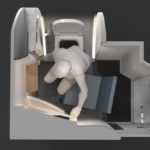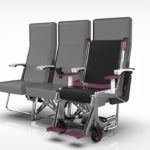Coronavirus and Accessibility Addressed by APEX/IFSA CEO During Congressional Hearing
Share
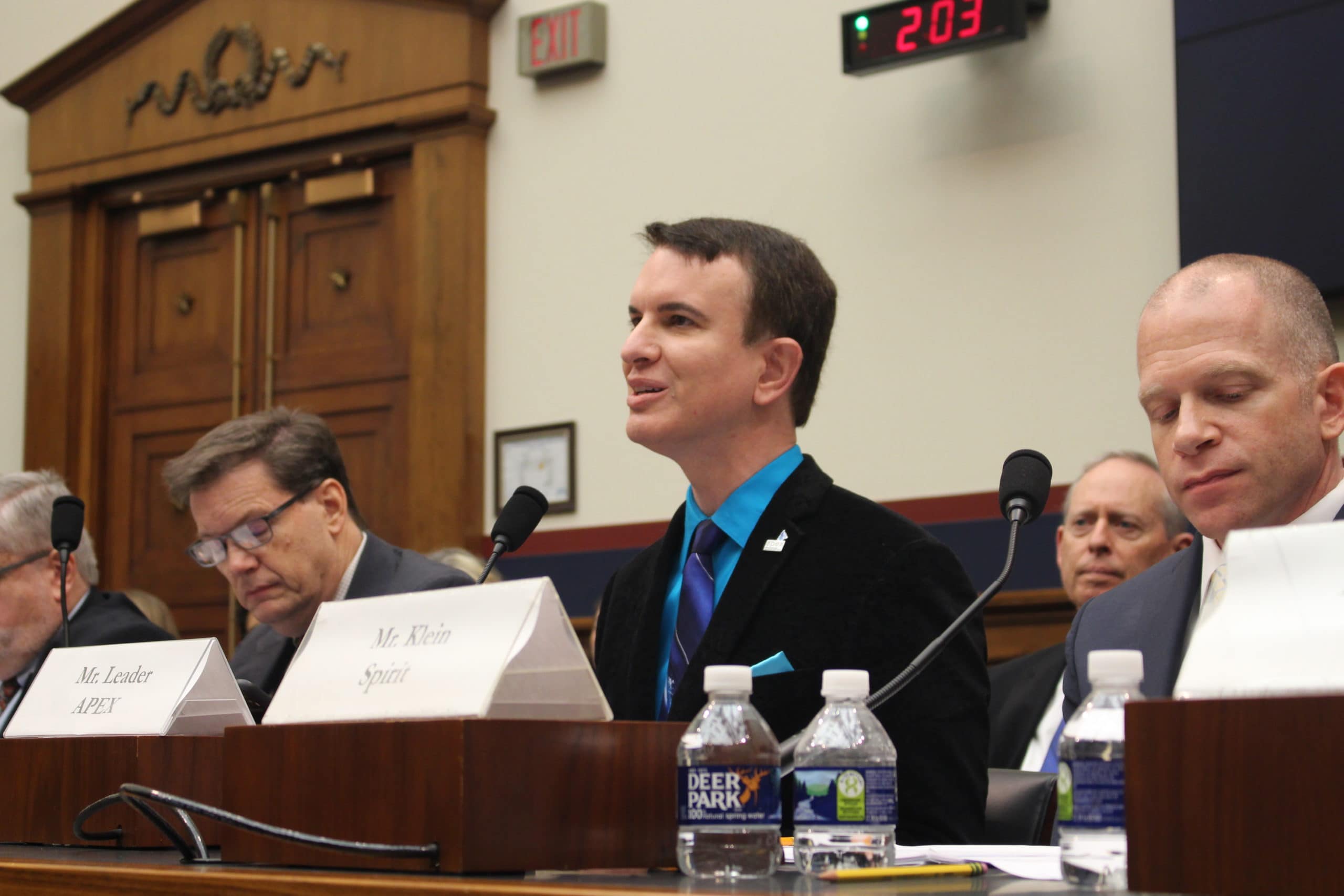
During a congressional hearing before members of the House Committee on Transportation and Infrastructure, APEX/IFSA CEO Dr. Joe Leader put forward a list of best practices for airlines to follow during the COVID-19 epidemic, which may evolve into a pandemic. Leader also highlighted accessibility as a central area of concern for the industry, praising Spirit Airlines for having wheelchair-accessible lavatories installed on the majority of its aircraft.
APEX/IFSA CEO Dr. Joe Leader reassured members of Congress and the general public during a hearing yesterday that it is safe to fly despite the COVID-19 outbreak. He outlined nine steps that airlines should be taking, including ensuring clear communication with passengers and staff, implementing aircraft decontamination procedures and allowing broader waivers for booking changes and cancellations, which several airlines have already done.
Leader also underlined the importance of the involvement of airports in addressing the coronavirus, suggesting that the TSA make hand sanitizer available to passengers at security checkpoints.
According to Andrew Von Ah, director, Physical Infrastructure, US Government Accountability Office (GOA), research conducted by the department showed that airports do have plans in place to address viral outbreaks, but face challenges in execution. “All of the airports we looked at a few years ago had individual plans for dealing with a situation like this. Some of the challenges we noted in executing these plans related to coordination and communication from federal agencies and amongst contractors in the airport area,” he explained. “We don’t really have a national plan. This is a recommendation we still have open for the Department of Transportation (DoT).”
Another crucial best practice identified by APEX is enhancing access to customer data. Congressman Stephen Lynch echoed this, highlighting that passenger data may be required to warn airline customers if they’ve been in contact with someone diagnosed with COVID-19, but that airlines aren’t always willing to share that data.
Part of the problem is that online travel agencies (OTAs) like Expedia don’t share passenger data with airlines, explained Matt Klein, executive vice-president and chief commercial officer, Spirit Airlines. Leader thinks this may soon change: “I think you’re going to see a wall break down. If the [Center for Disease Control] requests [passenger data], I think the OTA behind the reservation will offer it to the airline, when historically they have not.”
“Every new [aircraft] delivery has an accessible lavatory.” – Matt Klein, Spirit Airlines
Leader is also optimistic regarding aircraft accessibility for wheelchair users, especially with respect to lavatory access. “This is a central area of concern. I’m proud of what Spirit has done as a market leader in this space … There are more options than before. Our airlines care,” he said.
Spirit is the only major US carrier to have wheelchair-accessible lavatories installed on most of its aircraft, Klein stated. “Half of our fleet went through a retrofit in order to put [Space-Flex] lavs into the aircraft a few years ago; every new [aircraft] delivery has an accessible lavatory,” he said. “We also have the widest aisles you could possibly have on a single-aisle aircraft.”
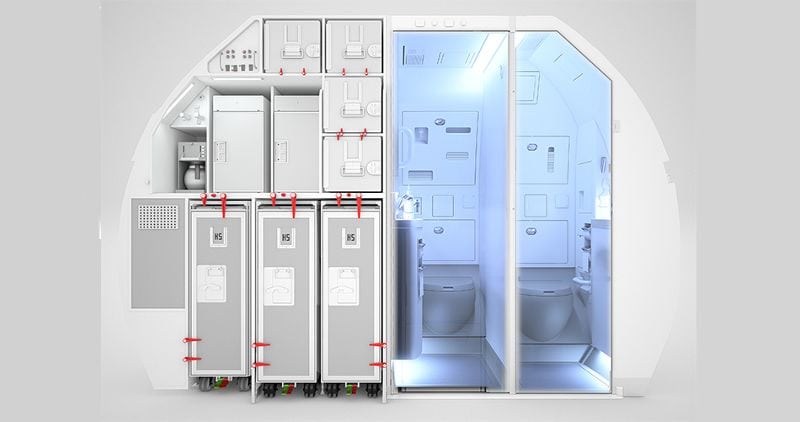
Airbus’ Space-Flex lavatory allows a foldable divider to be removed to connect two lavatories so that a passenger in a wheelchair can use the restroom. Paralyzed Veterans of America members will often dehydrate themselves before a flight because going to the bathroom simply isn’t an option, explained Lee Page, senior associate advocacy director of the organization.
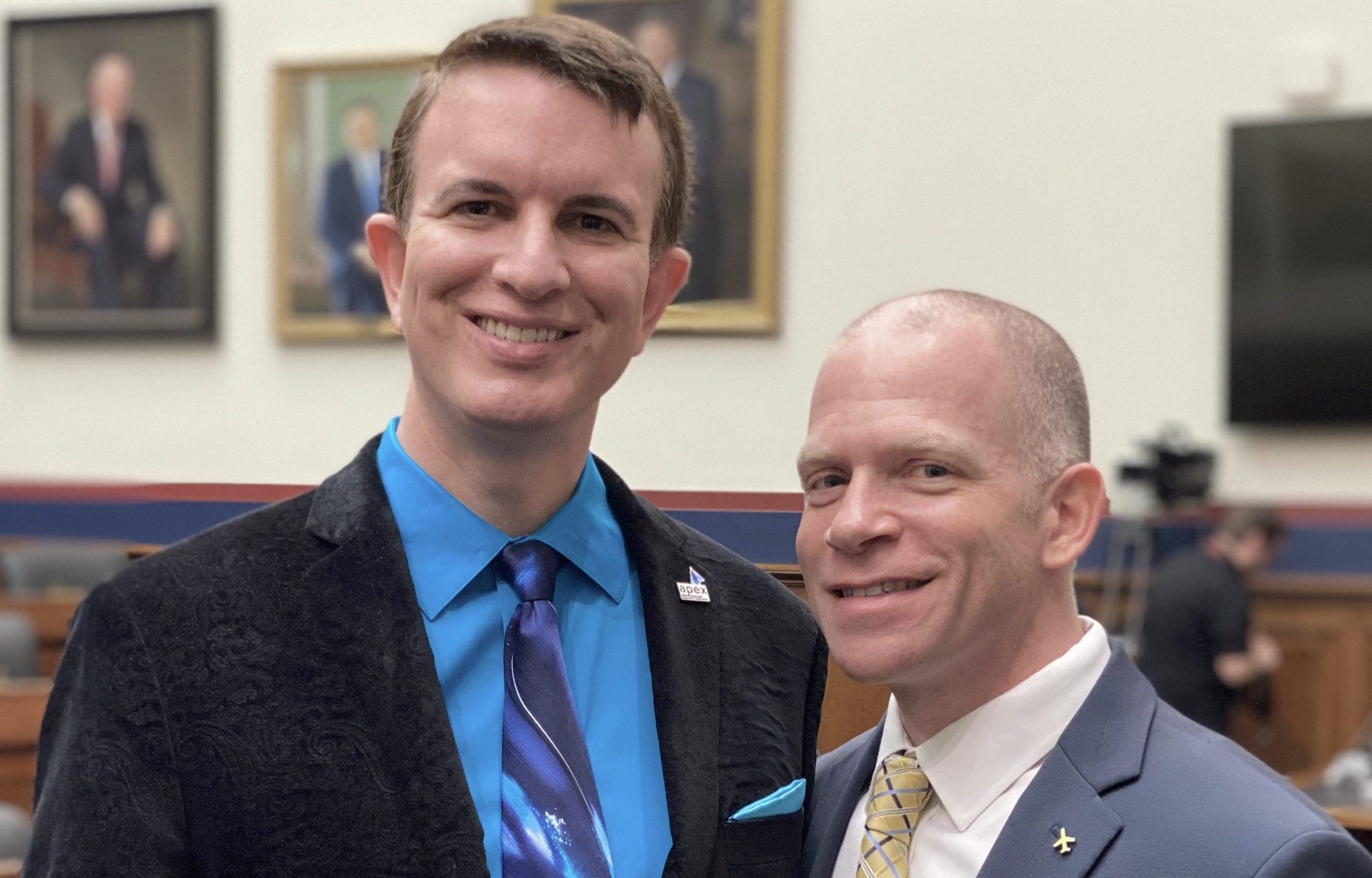
The DoT requires one accessible lavatory on all new twin-aisle airplanes, in accordance with the 1990 Air Carrier Access Act (ACAA), but there is no such regulation for single-aisle aircraft. According to the GOA, 4.5% of single-aisle aircraft operated by the eight largest US airlines have accessible lavatories. Chair of the Subcommittee on Aviation Rick Larsen reiterated data from the last US census (2010) revealing that 5.7 million Americans have a disability and more than half of them have mobility issues.
“Although [the ACAA] has improved our experience, the process is far from seamless and is at times unsafe,” Page said. “Our members routinely report being physically harmed when boarding and deplaning aircraft. Their wheelchairs, particularly power wheelchairs, are often damaged while being stored. We believe most problems result from lack of training, inaccessible aircraft and inadequate enforcement of the law.”
While there is still much to be done, progress has been made on this front. Airbus and Boeing offer accessible lavatory options for their aircraft and other companies are putting forward ideas as well. Acumen Design Associates and ST Engineering have developed an expanding lavatory for line-fit or retrofit on Boeing 737 and Airbus A321 aircraft. The lavatory was designed with input from accessible aviation consultant and founder of Rocket Girl Coaching, Mary Doyle; campaigner, lobbyist and founder of Flying Disabled, Chris Wood; and entrepreneur and founder of easyTravelseat, Josh Wintersgill, among others. Designer Ciara Crawford’s Row 1 Aircraft Wheelchair concept integrates directly into the aircraft seat, eliminating the need for airline employees to manually move the passenger.



